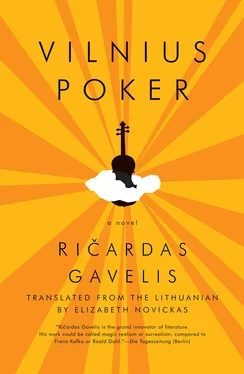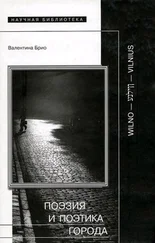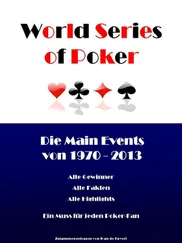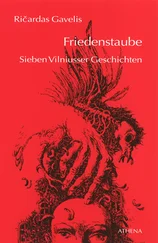Of course, Lolita is completely different: different eyes, a different body — not open, but as secretive and quiet as an abandoned lagoon. She is still standing there when the others finish jawing, start to disperse, and Martynas is saying something to me.
My head’s in a fog — that’s forgivable in a person who was caught in the vortex the moment he woke up, who once more parted the curtains of the secret spectacle, once more remembered the script of the inevitable role. Sometimes I think the best thing for me to do would be to go out of my mind. It’s too difficult to grasp everything with a clear mind. There are things that no human can do. Almost cannot bear, no matter how strong he is or how powerful his intellect may be. It is this “almost” that is my foolish hope, my wise hope. It is this “almost” that is all of me. For the time being I still am. In this world the easiest thing is to lose yourself. Most of the time you don’t even realize you no longer are, that only a stuffed dummy crammed with blood vessels and nerves, truly not your “I,” remains. You aren’t aware that They’ve already devoured you. You aren’t aware of anything. You don’t even remember that you once were.
It wasn’t easy to understand this, to open the door to the vague world of drab nothingness. For such exploits Their secretive system takes a cruel vengeance. I’m already almost a corpse. I’ve paid dearly for every crumb of understanding. What is the world worth, if it imposes so many tribulations and such pain without promising anything — neither paradise nor felicity on this earth? I didn’t expect requital, but I fought nevertheless. And I continue to fight. For what?
What the hell — for you, and you, for all of you!
I know that no one will put up monuments to me: I am a nameless soldier. But I fight every minute, even now, sitting in my office at work, repeating like a prayer: a clear head, cold logic, and caution. Those are the three whales on which my world depends. Outside the window the dirty pigeons of Vilnius are once more lazily soaring about, and once more time is throbbing in my temples. On the other side of the glass — bushes whitened by cement dust and construction scaffolding. Two figures drag themselves along slowly; one steps inside the shrubbery and unbuttons his fly. Between his spread legs I see a little stream watering the ground.
You don’t see anything, it’s dark, there’s nothing, although you strain to see, even your belly hurts. On the right an old dresser, on the left a mirror, they help you to see. It’s there! Really, really, it’s there, pale little faces coming up to the window.
“Mama, they’re looking! Little chubby faces! Who are they? What do they want?”
“Bugbears,” says mama. “They live in the forest beyond the Giedraitis house, and in the evening they look for naughty children. They search and hunt high and low.”
“Where do they hide in the daytime? Why doesn’t anyone find them?”
“During the day they turn into rats. Gray rats. When they catch some naughty child, they suck out his blood, so he walks around all white.”
“Like little Giedraitis?”
“Even more so, without even a drop of blood. The child doesn’t want anything, he doesn’t remember anything. . but you’re a good boy, they won’t touch you.”
You raise your head quickly, quickly — really, they’ve disappeared; it wasn’t you they were looking for.
“I already know. They’re kanukai.”
“What, what?” Mama’s red lips smile.
“They’re not bugbears,” you say proudly, because you’ve thought up a new word. “They’re kanukai. When I grow up, I’ll catch them.”
Let’s reason this out logically. The black limousine intimidated me far less than it would have once. I’ve experienced too much to be terrified by the chilly whiff of Death’s shroud. I’ve consorted with that eyeless one for a long time; on meeting, we smile at one another like old acquaintances. Death is a woman whom I once had , but cast aside. Always expect revenge and treachery from a woman who’s been cast aside; don’t allow yourself to be caught by surprise. They know this perfectly.
Let’s reason this out logically. They couldn’t have intentions on my body. They need more, far more. True, Their plan could have been this: a broken spine, paralyzed limbs, battered brains. That’s hard to believe: They know I couldn’t be dealt with like that. And I know, but all the same I’d rather think about realistic, common sense punishments. However, every last thing — even my liver, kidneys, and lungs — is screaming and shouting that the great game has begun again, and the price is my “I.”
Besides — where had all the birds disappeared to, anyway?
Some other, more fundamental logic must be sought in this case. Images and moods speak more effectively and astutely than words, you just need to listen carefully. You need to listen in a particular way; after all, I’ve studied this art in my nightmares and while awake, in dreams and behind the barbed wire of the prison camp. It’s imperative to hear what the united ALL whispers to me. Now I enter the old house in the depths of a garden. Now I pass slowly between the bookshelves, shadowing the small head of a woman with closely cropped hair. Now I slowly pull back the little curtain that hides two grim paintings. Now I shake Suslov’s flaccid hand. Incidents arrange themselves into a complex tangle, announcing the great secret in a drab script.
A clear head, cold logic, and caution! The clock shows two o’clock in the afternoon; more than anything, I want to slowly die. If only someone were to know how solitary I am!
The black bricks of the boulevard’s paving reflect a woman bent under the weight of a shopping bag, the emptiness of windows crammed with junk, the roof cornices’ ornamentations. Vilnius pants convulsively, like a dying beast. It’s close to three, prime work time, so no one is working: faceless figures keep trudging by — I don’t want to grace them with the word “faces,” those skulls with skin stretched over them. They walk along without even suspecting they no longer are. But after all, at some point they were, and could still be. Although no, they couldn’t, it’s too late. They’re all doomed already. All that’s left is to socialize with Vilnius itself — it understands me, and I have compassion for it. Vilnius suffers, oppressed by inactivity and somnolence, remembering the Iron Wolf like a dream. It should have howled through the ages, but grew decrepit long ago, sickened with throat cancer; its metastases eat away at the city’s brain too. Perhaps only we two, Vilnius and I, are still alive . The stream of the unalive constantly flows down the boulevard like a murky river. The messengers of gray nonexistence crawl over the city’s body like an invincible army of cockroaches. The history of the world is a chronicle of humanity’s futile war with cockroaches. Alas, the cockroaches always win. Vilnius sprawls helplessly, almost paralyzed, its hands shackled and its mouth gagged. However, it can still think . The two of us are still alive; for the time being still alive.
The best place to hide yourself from passersby is next to Vilnius’s real river. The Neris is the river of Vilnius’s time, the river of memory. It remembers nothing itself; it just carries other’s memories. It’s not true that you can’t wade into the same river’s stream twice. Heraclitus was mistaken, or more accurately, he had some other river in mind, certainly not this river. The water of the Neris turns and turns in a circle, you can wade into the same stream many times. You can scoop up a handful of water that saw the founding of Vilnius, drink a gulp the Iron Wolf once drank. You fling a pebble into the murky current, it plops into the water, and its echo summons some ancient sound, words pronounced once upon a time — maybe even your own. The Neris remembers everything; it’s a miraculous river, you just need to hear it talking. Sometimes I hear it.
Читать дальше












